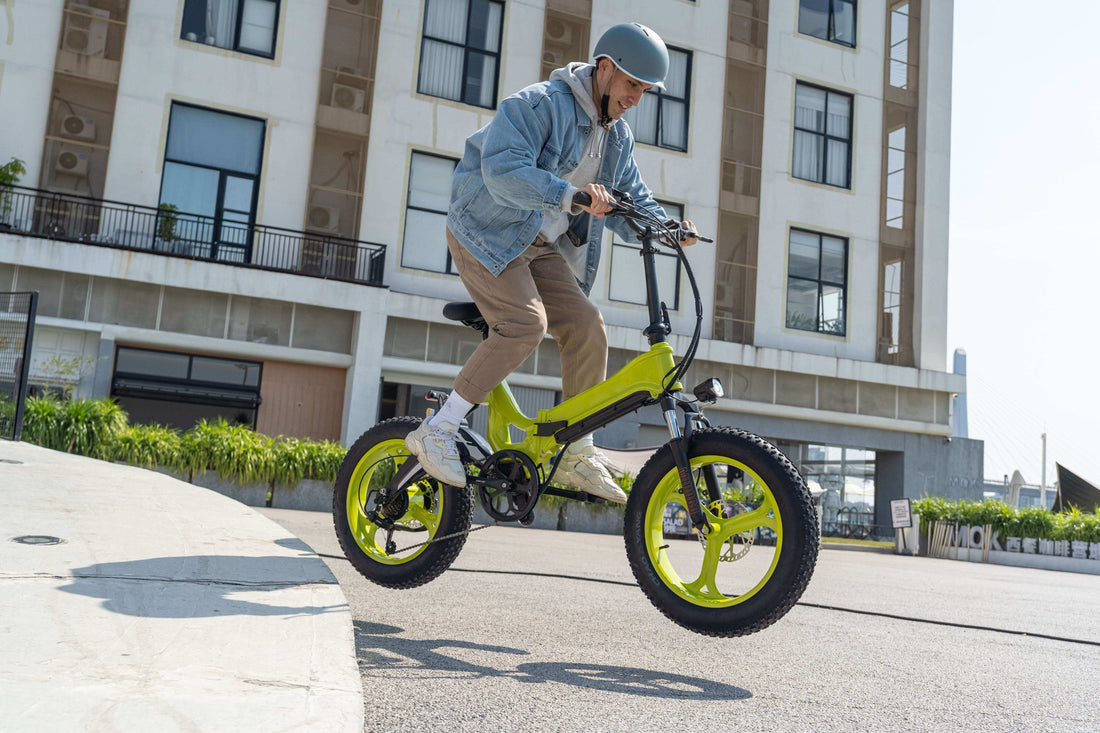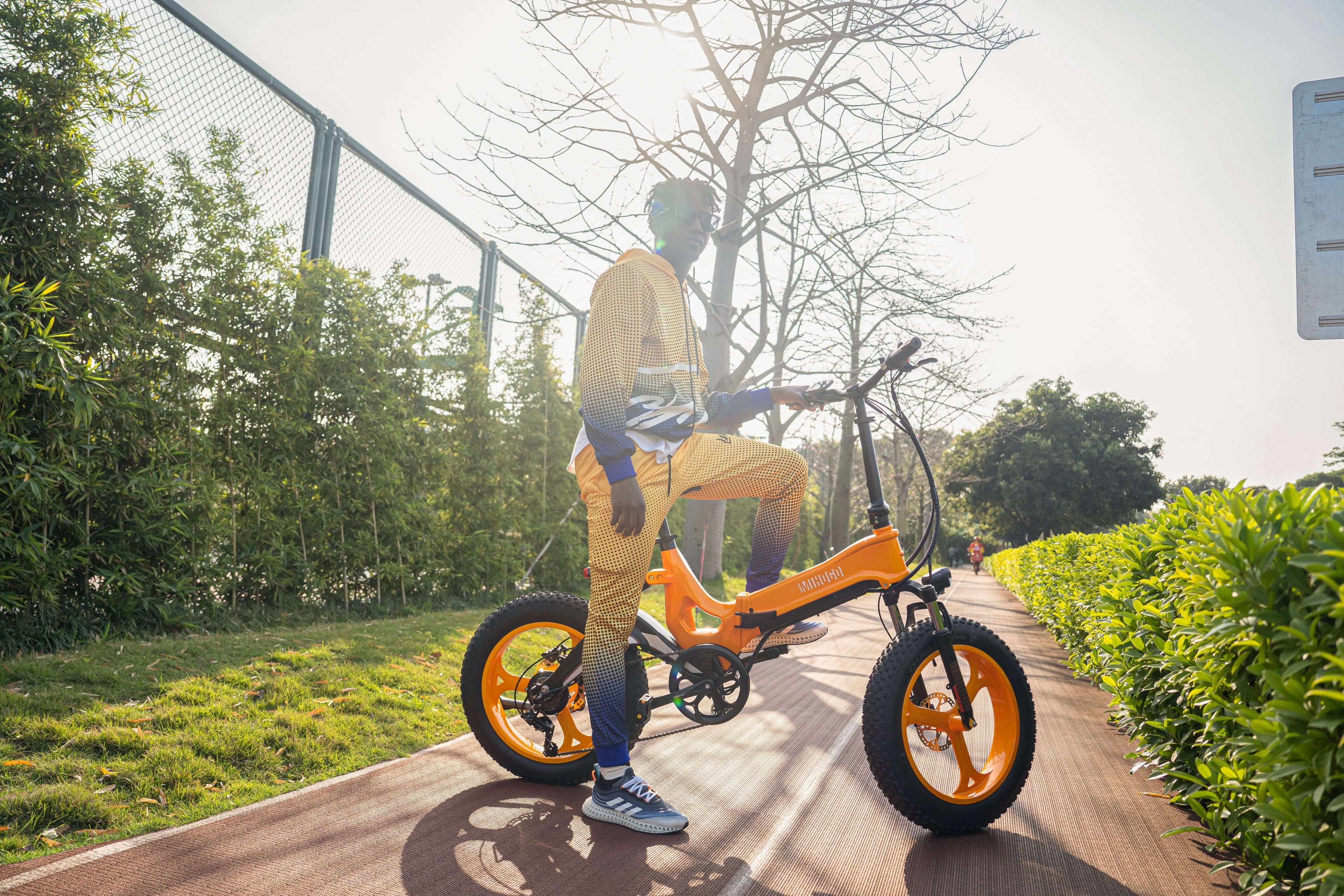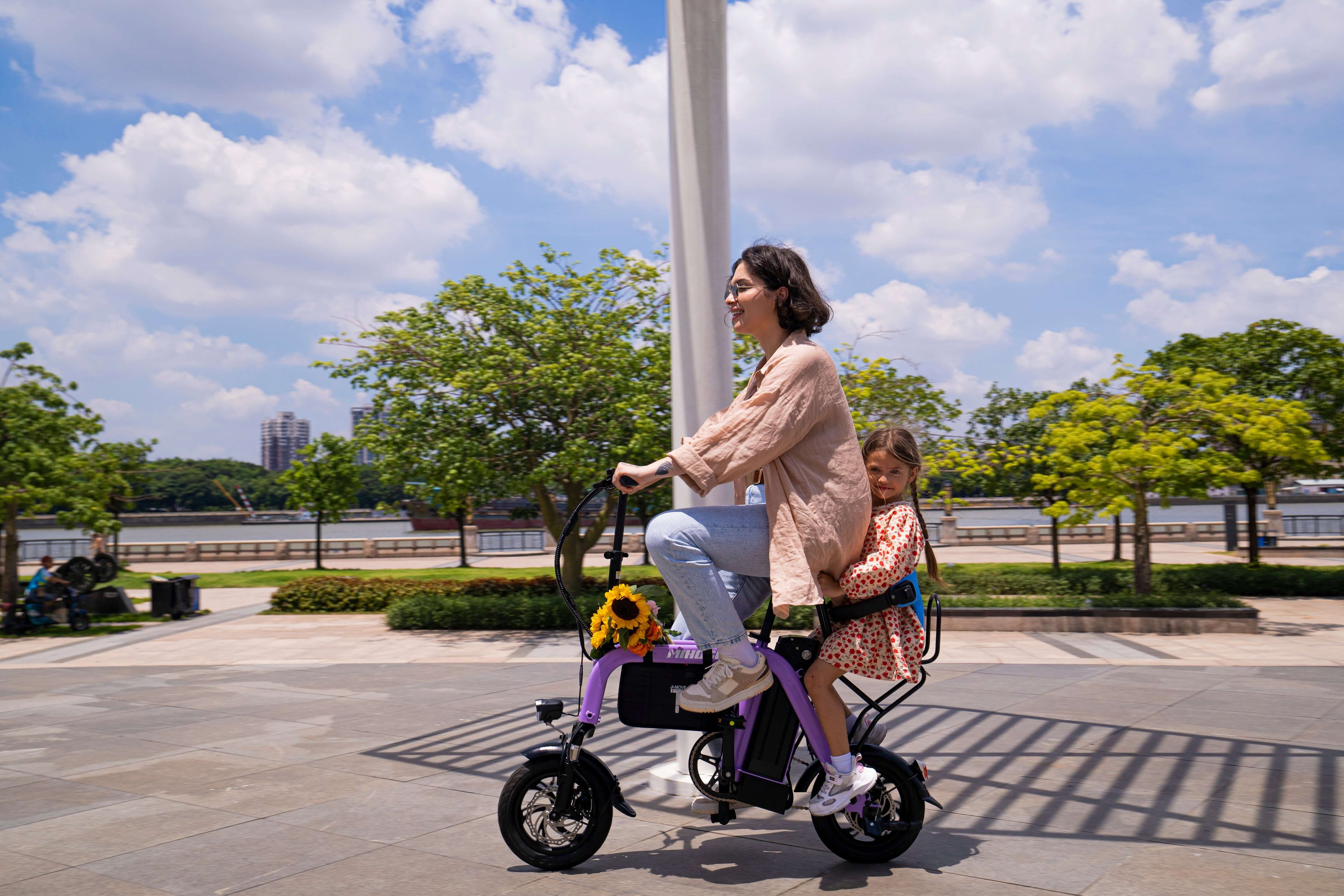Why E-bike Helmets Are Different from Regular Bike Helmets
Standard bike helmets are designed for impacts at speeds up to 15 MPH—perfect for casual cycling but inadequate for the speeds your Mihogo e-bike can achieve. When you're riding your MIHOGO ONE Utility EBIKE at its top speed of 25 MPH, you need protection that matches your performance.
E-bike specific helmets offer enhanced features including:
- Extended rear coverage to protect the back of your head and neck
- Reinforced temple protection where skull bone is thinner
- Higher impact resistance tested for speeds up to 28 MPH
- Integrated safety lights for enhanced visibility during your commute
The key difference lies in impact energy. At 25 MPH, crash forces are nearly three times greater than at 15 MPH, making specialized protection essential for serious e-bike riders.
Essential Safety Certifications to Look For
NTA 8776: The Gold Standard for E-bike Safety
Introduced in 2016 by the Netherlands, the NTA 8776 certification is specifically designed for electric bikes traveling up to 28 MPH (45 km/h). This standard requires 87% more overall protection compared to traditional bike helmets, with enhanced coverage at temples and the back of the head.
Key NTA 8776 requirements include:
- Higher drop tests simulating real-world e-bike crashes
- Enhanced side and rear coverage for comprehensive protection
- Multi-impact resistance tested under various weather conditions
- 25% more protection than standard CPSC-certified helmets
MIPS Technology: Protection Against Rotational Impacts
MIPS (Multi-directional Impact Protection System) reduces rotational forces that can cause brain injury during angled crashes—the most common type of cycling accident. This lightweight slip-plane system allows the helmet to move slightly during impact, redirecting dangerous rotational energy away from your brain.
Virginia Tech studies show that helmets with rotational impact systems like MIPS reduce concussion risks by 42% compared to traditional designs.
Additional Safety Standards
- CPSC (US): Minimum requirement for all bike helmets sold in America
- EN1078 (Europe): Basic European bicycle helmet standard
- ASTM: American Society for Testing and Materials certification
- Snell: Premium certification with additional testing protocols
Key Features for Mihogo E-bike Riders
1. Integrated LED Lighting Systems
Modern e-bike helmets feature built-in front and rear LED lights with up to 10-hour battery life. Look for models with:
- 360-degree visibility with front white and rear red lights
- Automatic brake detection that activates rear lights during deceleration
- Turn signal functionality activated via handlebar remote
- USB-rechargeable systems for convenience
2. Advanced Ventilation Design
Extended rides at higher speeds generate 30% more heat than traditional cycling, making superior ventilation crucial. Premium e-bike helmets feature:
- 15+ strategically placed vents for optimal airflow
- Internal air channels that direct cooling air over your scalp
- Moisture-wicking padding with antimicrobial treatments
- Adjustable vent covers for varying weather conditions
3. Smart Technology Integration
The future is here with smart e-bike helmets offering:
- Crash detection that automatically contacts emergency services
- Bluetooth connectivity for hands-free calls and navigation
- Built-in speakers that don't block ambient sound
- App integration for customization and safety monitoring
4. Comfort and Fit Technology
Your helmet should feel like a natural extension of your head:
- 360-degree adjustment systems using BOA dials or similar
- Magnetic buckles for one-handed operation
- Ponytail compatibility for riders with long hair
- Multiple shell sizes ensuring proper fit across head shapes
Matching Your Helmet to Your Mihogo E-bike
For Mihogo Air750 Max Riders (Carbon Fiber, 750W, 25 MPH)
- NTA 8776 certified helmet essential for high-speed protection
- MIPS technology for rotational impact protection
- Aerodynamic design to complement your bike's performance
- Integrated lights for visibility during long-range rides
For MIHOGO ONE Utility Owners (750W, 167 Miles, 25 MPH)
- Urban commuter style with extended rear coverage
- Integrated cargo compatibility if you're hauling gear
- Weather-resistant features for all-condition riding
- High-visibility colors for city traffic safety
For MIHOGO RX 2.4 Commuters (Folding, 500W, 23 MPH)
- Lightweight design that complements your portable bike
- Compact profile for easy storage when folded
- Urban styling appropriate for professional environments
- Reflective elements for commuter visibility
For Mihogo Mini Riders (350W, 21.9 MPH, 62 Miles)
- Comfortable all-day wear for extended rides
- Excellent ventilation for longer journeys
- Affordable options that don't compromise safety
- Versatile styling for various riding scenarios
Top E-bike Helmet Features for 2025
Budget-Friendly Options ($80-120):
- MIPS or similar rotational protection
- Basic LED lighting
- CPSC certification minimum
- Good ventilation system
Premium Features ($150-300):
- NTA 8776 certification
- Integrated turn signals and brake lights
- Crash detection technology
- Advanced materials and construction
- Smart connectivity features
Professional Urban Models:
- Sleek, business-appropriate styling
- Integrated storage solutions
- Premium comfort features
- All-weather protection
Red Flags to Avoid When Shopping
Never Buy Helmets That:
- Lack proper safety certifications (CPSC minimum)
- Don't fit properly despite adjustments
- Have visible cracks, damage, or wear
- Are over 5 years old or have unknown crash history
- Come from unverified manufacturers
- Lack return policies for fit issues
Beware of "Too Good to Be True" Prices: Quality e-bike helmets with proper certifications typically cost $80-300. Extremely cheap options often lack essential safety features or proper testing.
Proper Helmet Maintenance for Mihogo Riders
Daily Care:
- Clean regularly with mild soap and water
- Check lighting systems before each ride
- Inspect straps and buckles for wear
- Store in cool, dry location away from direct sunlight
When to Replace:
- After any impact, even if damage isn't visible
- Every 2-3 years for daily commuters
- When fit becomes compromised due to wear
- If safety certifications have expired or been superseded
Battery Maintenance (Smart Helmets):
- Charge regularly to maintain battery health
- Store at room temperature to extend battery life
- Update firmware as recommended by manufacturer
Making Your Final Decision
Start with Safety: Choose helmets that meet or exceed NTA 8776 standards if you regularly ride above 20 MPH on your Mihogo e-bike.
Prioritize Fit: A properly fitting helmet will always provide better protection than an ill-fitting premium model.
Consider Your Riding Style: Urban commuters need different features than recreational trail riders or long-distance tourers.
Budget Wisely: Quality protection doesn't always require maximum expense, but don't compromise on essential safety certifications.
Test Before Purchase: Many bike shops offer fitting services or generous return policies for online purchases.
The Bottom Line
Your Mihogo e-bike represents a significant investment in sustainable, efficient transportation. Protecting that investment—and more importantly, protecting yourself—with a quality e-bike helmet isn't optional; it's essential.
Whether you're commuting daily on busy city streets or exploring scenic trails on weekends, the right helmet transforms your riding experience from anxious to confident. When you can trust your protection, you're free to enjoy the incredible performance and range that makes Mihogo e-bikes special.
Remember: The best helmet is the one you'll actually wear every single ride. Choose protection that matches your speed, style, and safety needs, then make wearing it as automatic as starting your bike.
External Resources:
- Bicycle Helmet Safety Institute - Comprehensive helmet safety information
- Virginia Tech Helmet Ratings - Independent helmet testing results
- Dutch NTA 8776 Standard - Understanding international e-bike helmet standards







